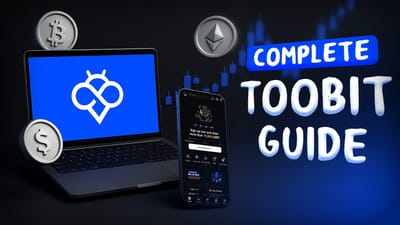Stop overpaying - start transferring money with Ogvio. Sign up, invite friends & grab Rewards now! 🎁
US Judge Denies Terraform Labs' Attempt to Dismiss SEC Lawsuit
It appears that Terraform Labs will have to deal with the SEC lawsuit regardless of its attempt to dismiss it.
In a recent ruling that took place on July 31st, Judge Jed Rakoff of the Southern District Court of New York dismissed the attempt by Terraform Labs and its founder, Do Kwon, to seek a dismissal of a lawsuit filed by the United States Securities and Exchange Commission (SEC).
On top of that, the ruling disagreed with a previous judgment by US District Judge Analisa Torres about Ripple's sale of its XRP token on public crypto exchanges.

Did you know?
Subscribe - We publish new crypto explainer videos every week!
Crypto Mining Explained: How to Earn From Mining Bitcoin? (Animated)


Earlier this year, the SEC took legal action against Terraform Labs and Kwon, accusing them of "orchestrating a multi-billion dollar crypto asset securities fraud."
In response, in April, Terraform Labs' legal team moved to dismiss the suit. In June, the legal team behind Terraform provided supplemental materials to support their motion.
The essence of the argument made by Terraform Labs’ legal representatives was two-fold. Firstly, they claimed that the SEC doesn't have jurisdiction over the company and its founder. Secondly, they disputed the SEC's perspective that tokens such as Mirror Protocol (MIR), Terra Classic (LUNC), and TerraUSD Classic (USTC) qualify as securities. They also stated:
Congress is not only engaging in robust debate over how crypto should be regulated, it is asking the SEC to wait for Congress to act.
Despite their arguments, Judge Rakoff was not convinced. He refuted Terraform Labs' claims that the SEC lacked the power to regulate crypto tokens in the absence of explicit Congressional approval, dismissing their objection referencing the “Major Questions Doctrine." He said:
For purposes of this motion, all well-plead allegations must be taken as true, and all reasonable inferences therefrom must be drawn in the SEC’s favor.
Judge Rakoff also offered a detailed interpretation of the Howey test, stating that a formal contract is not a requirement to meet the test, and tokens can be regarded as securities in court deliberations.
He further dismissed Terraform's attempt to differentiate between coins like MIR and LUNA based on their sale model, stating:
The Court rejects the approach recently adopted by another judge of this District in a similar case, SEC v. Ripple Labs Inc. <…> Howey makes no such distinction between <primary and secondary> purchasers.
This development is a noteworthy one, as it directly challenges the idea that XRP could be categorized as a commodity when sold on the secondary market, an argument that had previously worked in Ripple's favor. Should other judges align with Judge Rakoff’s reasoning, it could mark a significant turning point for the SEC's regulatory actions in the crypto space.









![How to Transfer Money Without Fees? [Animated Tips 2025] How to Transfer Money Without Fees? [Animated Tips 2025]](https://assets.bitdegree.org/youtube/crypto-finally-explained/how-to-transfer-money-without-fees-animated-tips-2025.jpg?tr=w-400)
![How to Transfer Money Without Fees? [Animated Tips 2025] How to Transfer Money Without Fees? [Animated Tips 2025]](https://assets.bitdegree.org/crypto/assets/video-button.png?tr=w-60)











